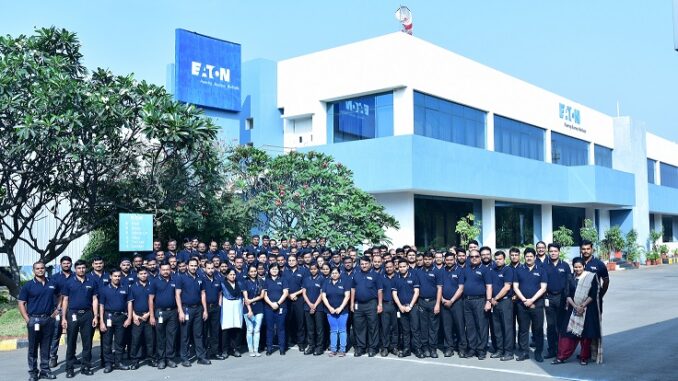
India: Underlying the importance of communal responsibility towards water management, Power management company Eaton introduces various measures to conserve water at its manufacturing unit at Ranjangaon, Nashik, and Pimpri. These efforts are in alignment with the company’s 2030 Sustainability Targets, which include certifying 10 percent of its manufacturing facilities as zero-water discharge. To be deemed zero water discharge, sites must discharge less than two percent of their industrial wastewater for three consecutive months.
At its Ranjangaon site, Eaton undertook process modification to remove contaminants from sewage water and set up a system for underground recharge rainwater harvesting. At the Nashik site, water leakages were addressed through water-proofing underground water tanks. The underground return line chambers were repaired, and water meters were installed at high water consuming areas. At the Pimpri site, the teams optimized its cooling tower by reducing evaporation losses.
Balachandran Varadharajan, Director Operations at Eaton India said, “India is poised to become the third-largest world economy and one of the top three manufacturing destinations by 2030. Due to this water demand for industrial use is also expected to grow significantly. Therefore, manufacturing companies should contribute to the country’s efforts to find sustainable solutions to reduce and reuse water usage.”
“At our Ranjangaon site, we reduced water consumption 10 percent in washrooms by introducing automatic sensor-based taps in washbasins and urinals. In Nashik, we saved 8,629 kilolitres of water last year. We look forward to working closely with our experts to further conserve the resource in the years ahead” he added.
Additionally, Eaton has expanded its efforts to help support drought-affected villages in Maharashtra. They have supported close to 4,600 families to overcome challenges due to water scarcity through various soil and water conservation interventions. This program is aligned with Government of India’s Jal Shakti Abhiyan, focusing on five aspects namely conservation and rainwater harvesting, renovation of traditional water bodies, watershed development, intensive afforestation and drinking water sanitation.
